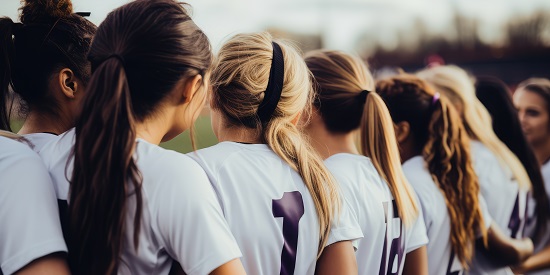Aussie female sport stars targeted by online trolls at alarming rate
Media release
Australian sportswomen are being subjected to vile and disturbing sexualised abuse by online trolls at an alarming rate, with most of the nation's female sport stars reporting they feel unsafe online.
A Deakin University study has blown the lid for the first time on how prevalent and insidious cyberbullying is of Australia's top female athletes. It shows nine out of 10 elite sportswomen are subjected to or witness gendered online harm levied at them or their peers.
Comments play on ill-informed and outdated gender stereotypes including that women should focus on housework or raising a child instead of playing sport. Other creepy remarks relate to how their bodies look in uniform or body shame the athlete.
Research lead Dr Caitlin McGrane of Deakin's School of Humanities and Social Sciences said the abuse often centred on the athletes' gender as well as other aspects of their identity. One in five study participants said their race or ethnicity was incorporated in the abuse, while a quarter copped hate for their sexuality.
Eighty per cent of those who did report online harm said they did not feel safer after making the report, while many said advice to ignore, block or delete harmful posts was unhelpful. Athletes were also more likely to suffer the attacks in silence due to ineffective reporting mechanisms, according to the report.
'These results should sound alarm bells at all Australian sport organisations,' Dr McGrane said.
'We found 87% of elite sportswomen experienced gendered online harm within the past year, with many the subject of personal insults, hate speech and purposeful attempts to embarrass them. Half experienced harassment and almost 40% were sexually harassed.
'Athletes told us they want more support to deal with the abuse and accountability that something is being done to address it. They also want to be kept informed about what reporting bodies do with their complaints and the investigation outcomes.'
The project – an Australian first – explored the patterns of athlete social media use, the prevalence and type of online harm they experienced, the impact of that harm and their experiences reporting and dealing with abuse.
A total of 138 elite, professional and semi-professional sportswomen from 32 sports were surveyed, with a further eight in-depth interviews conducted.
Most study participants (71%) witnessed gendered online abuse directed at fellow athletes, while almost half said they were the target of the vitriol.
The overwhelming majority (85%) said the abuse negatively impacted their wellbeing, and more than two-thirds reported it affected their athletic performance.
Deakin Centre for Sport Research Associate Professor Kim Toffoletti said the study found not just high-profile stars were targeted, but also those in lesser-known sports such as fencing, cheerleading, ice hockey, shooting and surf lifesaving.
She said it wasn’t easy for many athletes to tune out from the abuse, with most required to have an online profile for work.
'This study also uncovered diverse forms of online harm beyond online sexualised abuse such as misrepresentation and exclusion from online group chats as forms of bullying,' Associate Professor Toffoletti said.
'Many of our study participants felt strongly about their right to respond to harmful posts. Social media training directed at athletes to minimise engagement can perpetuate the silencing of women and leave damaging social stereotypes uncontested.'
Key recommendations from the Victorian Department of Families, Fairness and Housing-funded study include encouraging sport clubs to take greater responsibility to address online harm rather than leaving it to athletes to self-manage or report.
Another recommendation was to invest in widespread promotion of the supports, resources and tools available to help athletes harmed by trolls, including employee assistance programs and pro-bono legal support.
Sport organisations should also take greater action to report abuse and revoke the memberships of perpetrators, as well as consider publicly standing by their athletes through media statements, posts and campaigns calling out bad behaviour.
The full findings and recommendations of the report, Addressing Online Harm in Australian Women’s Sport, can be found here.

